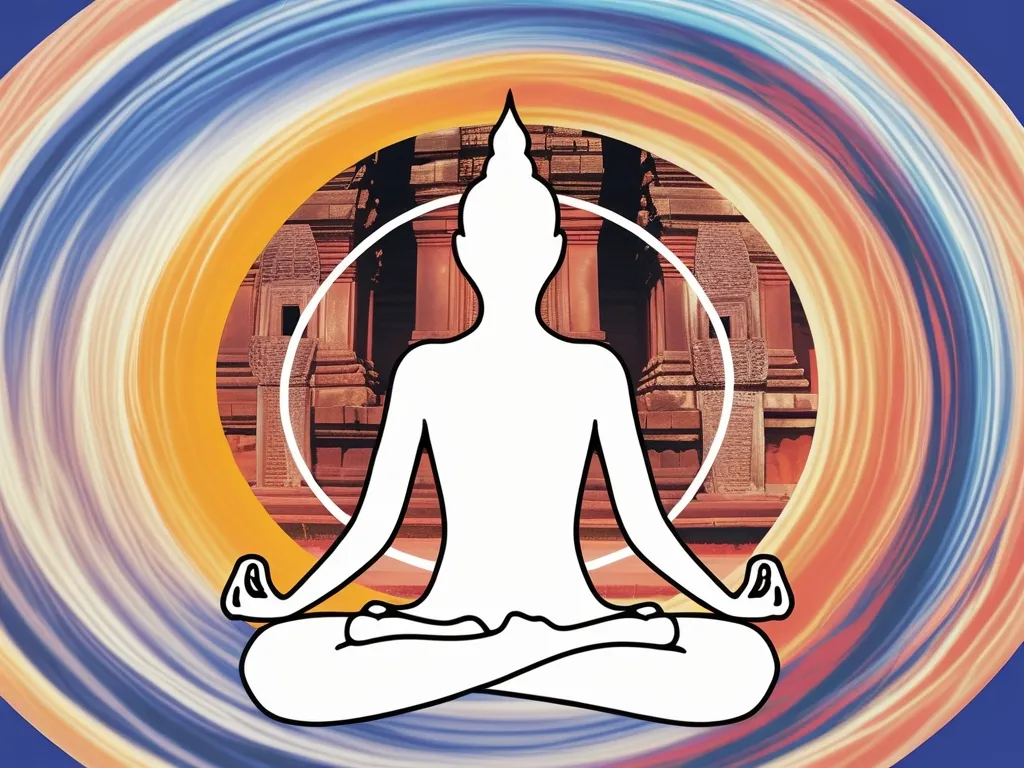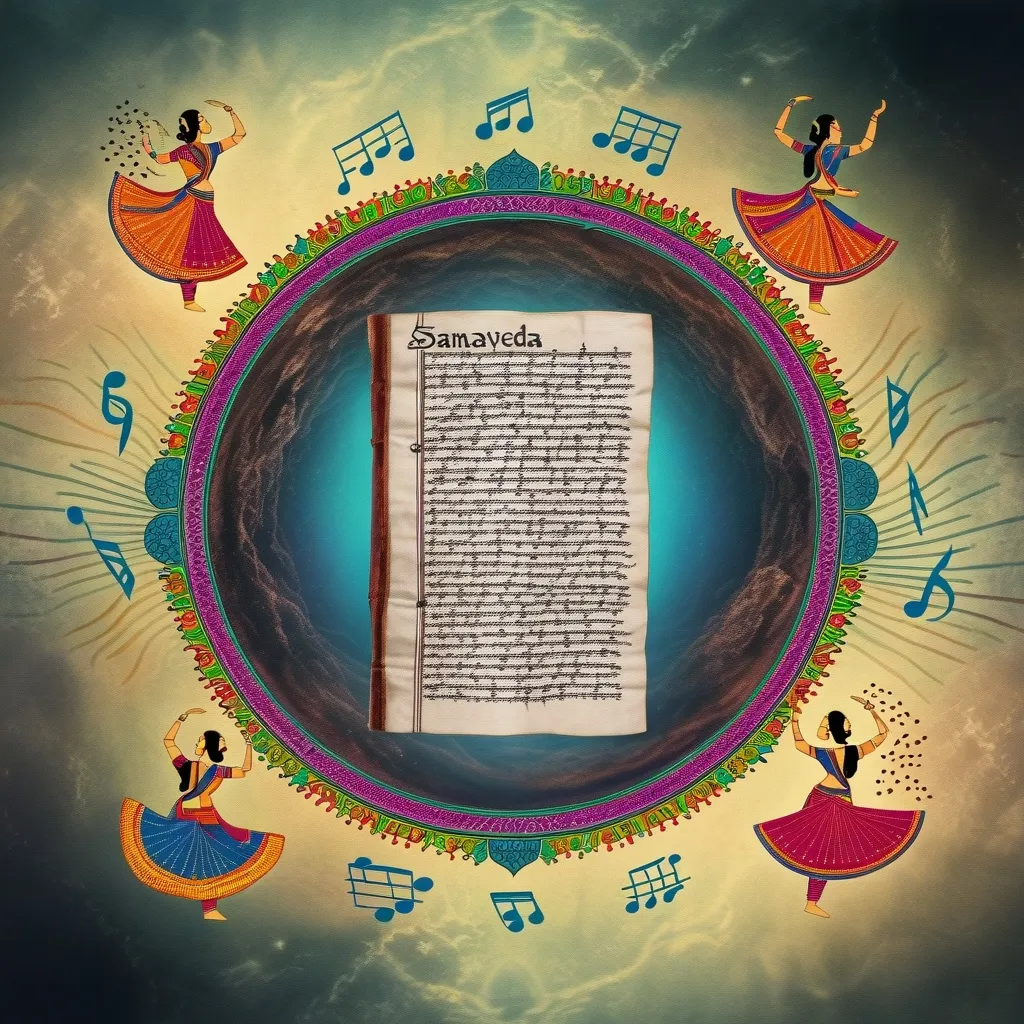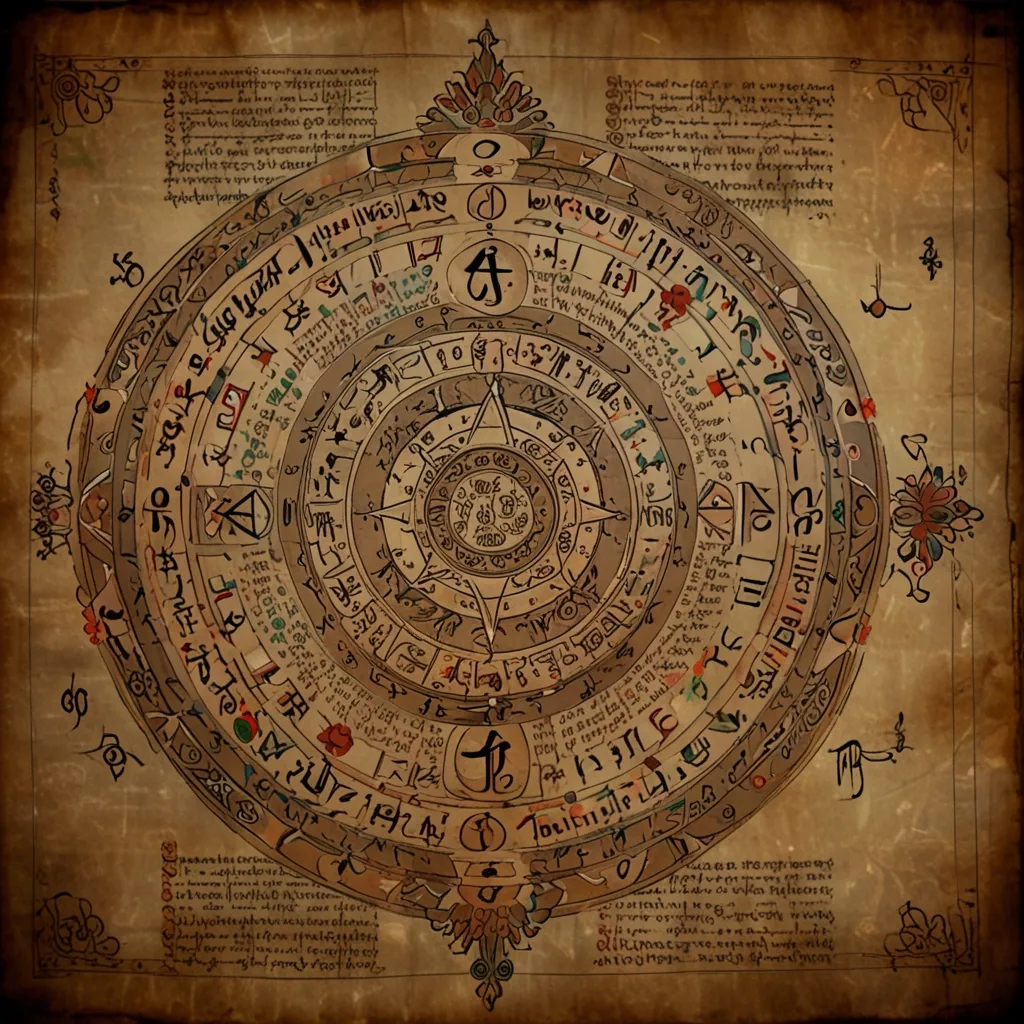Unveiling Ancient Wisdom: Vedic Solutions for Modern Mental Health
In our fast-paced world, where stress and anxiety seem to be constant companions, it’s easy to forget that we have access to ancient wisdom that has been guiding humanity for thousands of years. Hinduism, with its vast repository of knowledge, offers profound insights and practical methods to combat the mental health challenges we face today.
The Vedic philosophy, found in sacred texts like the Vedas and Upanishads, provides a unique perspective on the mind and mental health. Unlike the modern Western view that often sees the mind as purely physical, Hinduism considers it a functional element of the soul, or Atman. This concept opens up new possibilities for understanding and treating mental health issues.
Think about it - how often do we consider our thoughts as something that can be purified? The ancient Vedic texts suggest that our thoughts not only shape our facial expressions but can also be cleansed through the recitation of mantras. It’s like giving your mind a good scrub, washing away negative thoughts and replacing them with positive ones.
But it’s not just about positive thinking. The Vedic approach to mental health is holistic, encompassing various aspects of life. Take yoga, for instance. It’s not just a trendy exercise routine - it’s a powerful tool for managing anxiety and psychosomatic disorders. Yoga helps us develop control over both voluntary and involuntary nervous functions, which is crucial for mental well-being.
Imagine being able to calm your racing heart or slow down your breathing just by practicing certain yoga techniques. That’s the kind of control yoga can give you over your body and mind. And it’s not just physical postures - yoga includes various branches like Karma Yoga (selfless action), Bhakti Yoga (devotion), Raja Yoga (self-discipline), and Jnana Yoga (knowledge). It’s like a buffet of mental health tools, allowing you to choose what works best for you.
One particularly interesting yoga practice is Sudarshan Kriya Yoga. It’s been shown to decrease stress hormones and increase the levels of GABA, a neurotransmitter that’s often low in people with anxiety and depression. It’s like giving your brain a natural antidepressant boost, without any pills!
But Hinduism doesn’t stop at yoga. It also offers Ayurveda, an ancient system of medicine that recognizes mental disorders and provides detailed descriptions of their causes and management. Ayurveda emphasizes the importance of diet and lifestyle modifications in maintaining mental health. It’s not just about what you eat, but how you live your life.
Think about it - when was the last time you considered your diet as a tool for managing your mental health? Ayurveda suggests that what you put into your body can have a significant impact on your mind. It’s like choosing the right fuel for your car - the better the fuel, the smoother the ride.
One of the most powerful tools in the Hindu arsenal for mental health is the Bhagavad Gita. This ancient text presents a fascinating case study of Arjuna, a warrior grappling with anxiety, guilt, and depression on the eve of a great battle. Sound familiar? Many of us face our own battles every day, wrestling with similar emotions.
The dialogue between Arjuna and Lord Krishna in the Gita provides a therapeutic framework that’s still relevant today. Krishna’s advice focuses on the inevitability of life’s cycles, the immortality of the soul, and the importance of performing one’s duty without attachment to outcomes. It’s like a crash course in cognitive restructuring, helping you reframe your perception of stressful situations.
For example, Krishna tells Arjuna, “Wise people do not worry about things that are perishable or immortal.” This simple statement can be incredibly powerful when you’re caught up in anxiety about things beyond your control. It reminds us to focus on what we can change and accept what we can’t.
The Upanishads, another set of ancient Hindu texts, delve into the concept of holistic existence. They describe five levels of existence, including the physical, energetic, mental, intellectual, and spiritual bodies. Understanding these levels can help us address identity and existential crises. It’s like having a map of your entire being, helping you navigate the complexities of your existence.
One of the unique aspects of Hindu philosophy is the Guru-Sishya (teacher-student) relationship. This relationship, built on trust and wisdom, plays a significant role in psychotherapy. The guru imparts wisdom through structured explanations of the mind, intellect, ego, and consciousness, helping the student restructure their perception and resume their duties.
It’s like having a personal mental health coach, someone who can guide you through the intricacies of your mind and help you find clarity in the midst of confusion. In our modern world, this role might be filled by a therapist or a trusted mentor.
One of the core principles of Hinduism that can help alleviate depression is the emphasis on living in the moment rather than in the mind. How often do we find ourselves caught up in thoughts of the past or worries about the future, missing the beauty of the present moment? The mind is often described as a storehouse of past data, which it keeps repeating, causing us to miss out on the here and now.
The Bhagavad Gita advises us to let go of expectations while performing actions. It’s like playing a game for the joy of playing, rather than obsessing over winning or losing. By focusing on the task at hand without any expectations, we can perform actions with greater joy and efficiency. This approach helps in reducing anxiety and stress, as it aligns our actions with our true nature.
Gratitude is another powerful tool that Hinduism offers for mental health. By recognizing that we are part of a larger, eternal reality (Brahman), we can understand that our individual selves are limitless and eternal. This realization helps in shifting our perspective from a narrow, ego-centric view to a broader, more compassionate one.
Think about it like this - imagine you’re a drop in the ocean. You might feel small and insignificant on your own, but when you realize you’re an integral part of the vast ocean, suddenly your perspective shifts. You’re not just a tiny drop anymore - you’re part of something much bigger and more powerful. This understanding can help us see our problems in a new light and find peace in the midst of chaos.
So, how can we apply these ancient wisdoms in our modern lives? Here are a few practical tips:
First, incorporate meditation and yoga into your daily routine. Even a few minutes of deep breathing or simple yoga postures can make a significant difference. It’s like giving your mind a daily workout, keeping it fit and resilient.
Next, pay attention to your diet and lifestyle. Ayurvedic principles suggest that a balanced diet and regular physical activities can greatly improve mental health. It’s not about drastic changes - even small adjustments can make a big difference.
Practice gratitude. Take a few moments each day to reflect on the things you’re grateful for. This helps in shifting your focus from negative thoughts to positive ones. It’s like training your mind to look for the good in every situation.
Try to live in the present moment rather than getting caught up in thoughts of the past or future. Mindfulness practices can help you achieve this. It’s about savoring each moment, rather than constantly living in your head.
Finally, if you’re struggling with mental health issues, consider seeking guidance from a therapist or a mentor who can provide structured support and wisdom. It’s okay to ask for help - in fact, it’s a sign of strength, not weakness.
In conclusion, the Vedic philosophy offers a rich tapestry of wisdom that can be incredibly beneficial in managing modern anxieties and depressions. By incorporating these ancient teachings into our daily lives, we can find a deeper sense of balance, harmony, and peace. Whether through yoga, meditation, lifestyle modifications, or seeking guidance, Hinduism provides us with the tools to navigate the complexities of life with greater ease and clarity.
Remember, these ancient practices have stood the test of time for a reason. They offer a holistic approach to mental health that addresses not just the symptoms, but the root causes of our distress. By tapping into this ancient wisdom, we can find new ways to cope with the challenges of modern life and discover a sense of peace and purpose that transcends our daily struggles.
So why not give it a try? Incorporate some of these practices into your daily routine and see how they impact your mental well-being. You might be surprised at how these ancient teachings can transform your modern life. After all, true wisdom is timeless, and the insights of the Vedic philosophy are as relevant today as they were thousands of years ago.






